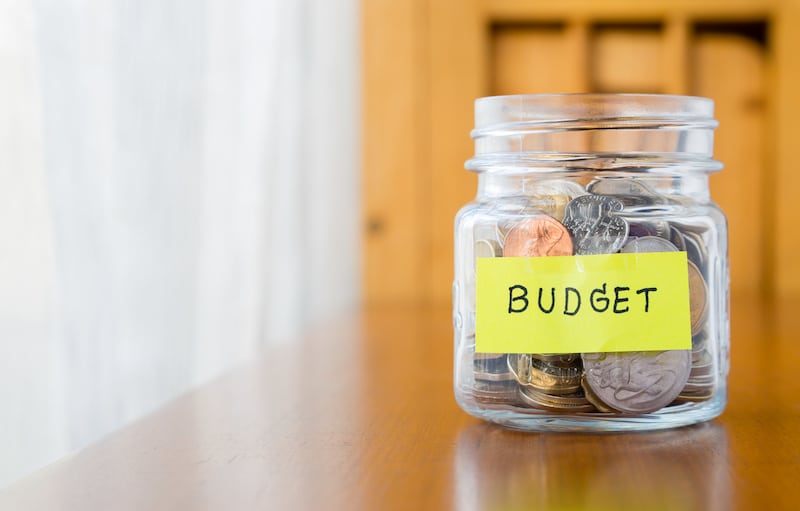How To Budget N100k Salary in Nigeria

If your monthly salary in today’s Nigeria is 100 thousand nairas or thereabout, congratulations and good luck to you, both in equal amount. The reality is that on one hand, 100k, which is about $200 is barely enough to live on, and on the other hand earning that amount monthly means you already make more money than 70% of Nigerians.
Point is, if you are struggling with your budget, it is not your fault, a lots of people are struggling in our country’s flailing economy. Hence the need for a creative budget, one specifically tailormade for an economy and society like ours. A budget can be used to plan out how you will spend your money in the most effective way and a good budget should give room for some personal enjoyment which is missing for most people in our society.
American senator, Elizabeth Warren came up with a budget plan she calls the 50-30-20 rule. It is a simple budget that divides your monthly income into 3 distinct buckets, which are:
- 50% to Needs
- 30% to Wants
- 20% to Savings
This is a simple and effective plan to follow if you are living in an advanced society, but for our own economy here in Nigeria, this budget plan might need a few adjustments to fit our reality thus;
- 65% to Needs
- 15% to Wants
- 20% to Savings
How to create a personal budget
Creating a budget is very simple. To get started, you need to figure out your monthly income. This is a bit straightforward if you are a Nigerian salary earner because most of us don’t have tax burdens or pay insurance.
If you are a business owner, you calculate your income by taking away taxes and expenses from your gross income.
Once you’ve figured out your after-tax income, the fun begins. It’s time to split your income into the 3 categories.
Category 1: 65% Needs
The 65% Needs category is for all your monthly essentials. So, this includes things you simply cannot live without. Include rent or mortgage payments, provisions, transport, utilities, and debt payments.
As you can see, the Needs budgeting category only includes the necessities you need to survive. Do not include entertainment, take-out, or fine dining in this category.
Out of your 100k salary, 65k is going to the essential things you need, here’s a further breakdown; about 20k should go towards savings for your yearly rent payment, and and a 100k salary earner should not be spending more than 250k yearly on house rent. About 20k should go towards buying provision and food in bulk, 2.5kg of Semolina, rice, and and and cooking oil when you buy these things in bulk you can save quit a lot. 15k should go towards filling your gas and paying the electricity bill for the month. The remaining 10k should be for transport if you live in any other Nigerian city apart from Lagos and Abuja, and if not, good luck to you.
Category 2: 15% Wants
Wants are the ways you enjoy the money you earn. Even if you don’t earn much, you have to live a little to make it all worth it. Wants are items that you definitely don’t need, but gives you pleasure.
The list of Wants is endless and differs from person to person depending on your lifestyle.
This is where we put things like going to the movies, paying for cable tv subscription, or ordering pizza. There is no specific time or sequence for this, you just do them whenever you feel the need to. FYI, movie tickets in Nigeria costs about 2k and a movie date for two can be well organized with about 7k.
Exercise wisdom with your wants, as it can be easy to justify spending if you really want something. The Wants category is often the trickiest to master.
Category 3: 20% Savings
Savings is arguably the most important of the 3 categories as this is what will determine whether or not you escape the rat race.
Savings can take many forms, and hopefully if you are reading this you don’t have all of your money stashed under your bed or worse still, have it sitting in a savings account at the bank. Investment is the way to go.
Investments refer to any money you have set aside to generate income. This can include investing in crypto currencies, purchasing real estate, or setting up a farm. A lots of people are making good money from farming in Nigeria.
Your top priority in this category should be your emergency fund. It is important to have three to six month’s worth of living expenses saved in your emergency fund. This should be liquid cash or anything valuable that can be quickly liquidated away from your investments.
There you have it, how to live on a N100k monthly budget in todays Nigeria. The money is not exactly enough, and you shouldn’t beat yourself up if you are finding it difficult to budget. Which is why people in this salary bracket should concentrate more on savings and investments.
Why budget plans works
You might be wondering why this budget works. There are a few reasons.
1. Simplicity
Firstly, the budget is really simple. If you’re not into details or if you’re just starting out, this budget is fail-safe and easy to implement. With it, you only focus on 3 buckets – Needs, Wants, and Savings which are pretty easy to figure out.
2. Every kobo has a purpose
Secondly, it helps you account for every kobo. You start off with your after-tax income, which represents 100% of what you have to work with, and then you work out the different categories from there.
3. Financial goals
Lastly, it can help you save up for large expenses such as buying a phone or other gadgets.
